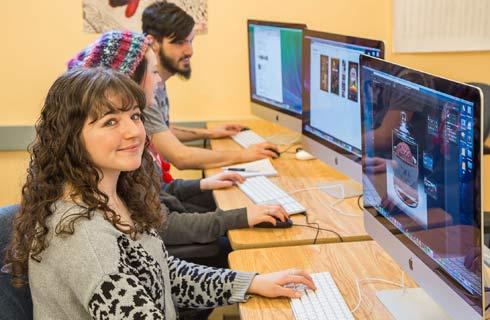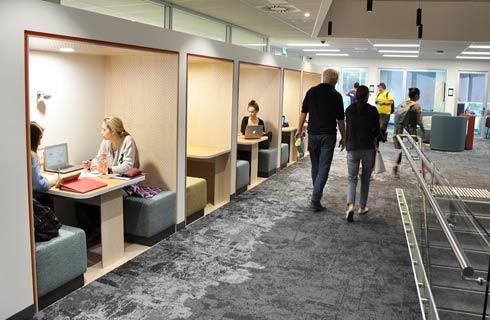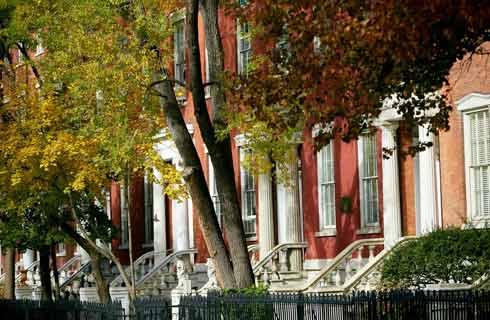音乐学士(荣誉)
BMus (Hons) Music

学历文凭
Bachelor Degree with Honours

专业院系

开学时间

课程时长

课程学费

国际学生入学条件
32 UCAS Tariff points. Applicants will also need to complete an audition for this course.
A Level / AS Level:
A Level: 32 UCAS Tariff points / EE (or equivalent).
AS Level: Must be in a different subject to A Levels.
A maximum of three subjects will be considered
Access to HE Diploma: Pass with 60 credits, 45 credits at level 3. Accepted subjects: Arts, Media and Publishing subjects preferred but other subjects also considered
International Baccalaureate Diploma: Obtain a minimum of 24 points overall.
English language requirements:
IELTS 5.5 or equivalent is required in all four skills areas
TOEFL iBT: Overall 72 (Reading 18, Listening 17, Writing 17, Speaking 20)
IDP—雅思考试联合主办方

雅思考试总分
6.0
- 雅思总分:6
- 托福网考总分:80
- 托福笔试总分:160
- 其他语言考试:PTE Academic - 64
CRICOS代码: 300F
申请截止日期: 请与IDP联系 以获取详细信息。
课程简介
The BMus (Hons) degree at Royal Birmingham Conservatoire will help you to realise your potential and prepare you for a career in the music profession, whether that is in performance, composition, or music technology. The programme will develop your specialist musical skills as well as developing your theoretical, historical, and practice-based knowledge, all the while encouraging your individual creativity. As a result, you will become an independent learner, a critical interpreter, and a reflective practitioner. You will have the opportunity to study in one of three Principal Study areas: Performance (Instrumental or Vocal), Composition, Music Technology.Enhance Employability SkillsAll of the UK's Conservatoires aim to do the same thing: to train students for the music profession with the emphasis firmly on your principal study, whether that is in performance, composition or music technology.As a vocational programme, it is easy to see how all your principal-study work adds to your professional development. Yet Royal Birmingham Conservatoire believes other areas of the course are just as important: the skills in writing, research, communication and critical and reflective thinking that you develop in the academic modules are exactly the types of graduate skills that make you more employable in any area of professional life, musical or otherwise.Team working and collaborative skills are highly valued in the profession as a whole and are particularly important in any musical context, and you will have opportunities to work as part of team and ensembles across all areas of the course. Equally, you will have opportunities to develop your ability to work under your own direction, whether that is through the individual time spent practising, researching and writing essays and presentations, or working on personal development projects.The course is designed so that we can guide you through these developments in the early years, give you the ability to reflect on what you have already learned and, most importantly, what you still need to learn. Taking charge of your own development as a musician enables you to work more independently in the later years and provides an employability skill set vital to your continuing professional life.
相关申请
 预科
预科 奖学金
奖学金 实习机会
实习机会 在校学习
在校学习 跨境学习
跨境学习 校园授课-线上开始
校园授课-线上开始 在线/远程学习
在线/远程学习
开学时间&学费
学费信息仅供参考,请与IDP联系以获取详细信息
| 开学时间 | 时长 | 学费 | 地点 |
|---|
学校排名

世界排名1001
数据源:
泰晤士高等教育世界大学排名
关于伯明翰城市大学

伯明翰城市大学 (BCU) 位于英国最多元化城市之一的中心地带,拥有来自100多个国家的31000多名学生。BCU 提供真正包容和支持性的环境,让国际学生从入学第一天起就能蓬勃发展。BCU 在其市中心校区和南城校区投资超过5亿英镑,提供先进的设施,包括生物医学科学实验室、模拟医院病房、犯罪现场套房以及专业标准的媒体工作室。这些资源确保学生获得真实世界的经验,为他们未来的全球职业生涯做好准备。伯明翰大学 (BCU) 专门的学生就业机构 Opportunity 帮助国际学生找到灵活的兼职工作,使其与学业同步,从而获得宝贵的英国工作经验和额外收入。学生还可以参加图灵计划等全球项目以及与合作大学合作的暑期学校,拓宽视野并建立国际人脉。职业支持是 BCU 体验的基石。Careers+ 团队提供求职、简历撰写和面试准备方面的专家指导,并在毕业后提供长达三年的持续支持。伯明翰本身是欧洲最绿意盎然的城市之一,拥有美丽的公园和花园。作为重要的商业、文化和创新中心,它为个人和职业发展提供了无数的机会。BCU 致力于在整个学生旅程中提供支持,提供财务建议、签证和移民支持、咨询和指导等服务,确保每位学生都能在学业和个人发展方面取得成功。
本校相关课程

法医心理学-理学硕士
学历文凭
Masters Degree (Taught)
开学日期
课程费用总额


代理-MA / PgDip
学历文凭
Masters Degree (Taught)
开学日期
课程费用总额


国际人权法
学历文凭
Masters Degree (Taught)
开学日期
课程费用总额


国际商法-法学硕士
学历文凭
Masters Degree (Taught)
开学日期
课程费用总额


项目管理-理学硕士
学历文凭
Masters Degree (Taught)
开学日期
课程费用总额


机械工程-理学硕士
学历文凭
Masters Degree (Taught)
开学日期
课程费用总额

其他相关课程

Diploma of Arts (Music Production) (12 Units)
Collarts
学历文凭
Diploma
开学日期
课程费用总额


MA Music
 爱丁堡龙比亚大学
爱丁堡龙比亚大学泰晤士高等教育世界大学排名:645
学历文凭
Masters Degree (Taught)
开学日期
课程费用总额


Master of Arts in Acting (International)
 埃塞克斯大学
埃塞克斯大学泰晤士高等教育世界大学排名:339
学历文凭
Masters Degree (Taught)
开学日期
课程费用总额


BA Music and South Asian Studies
伦敦大学亚非学院
泰晤士高等教育世界大学排名:455
学历文凭
Bachelor Degree
开学日期
课程费用总额


MMus in Music
 赫尔大学
赫尔大学学历文凭
Masters Degree (Taught)
开学日期
课程费用总额


Bachelor of Arts (Honours) in Music Industry Management (Placement year)
 赫特福德大学
赫特福德大学泰晤士高等教育世界大学排名:765
学历文凭
Bachelor Degree with Honours
开学日期
课程费用总额










